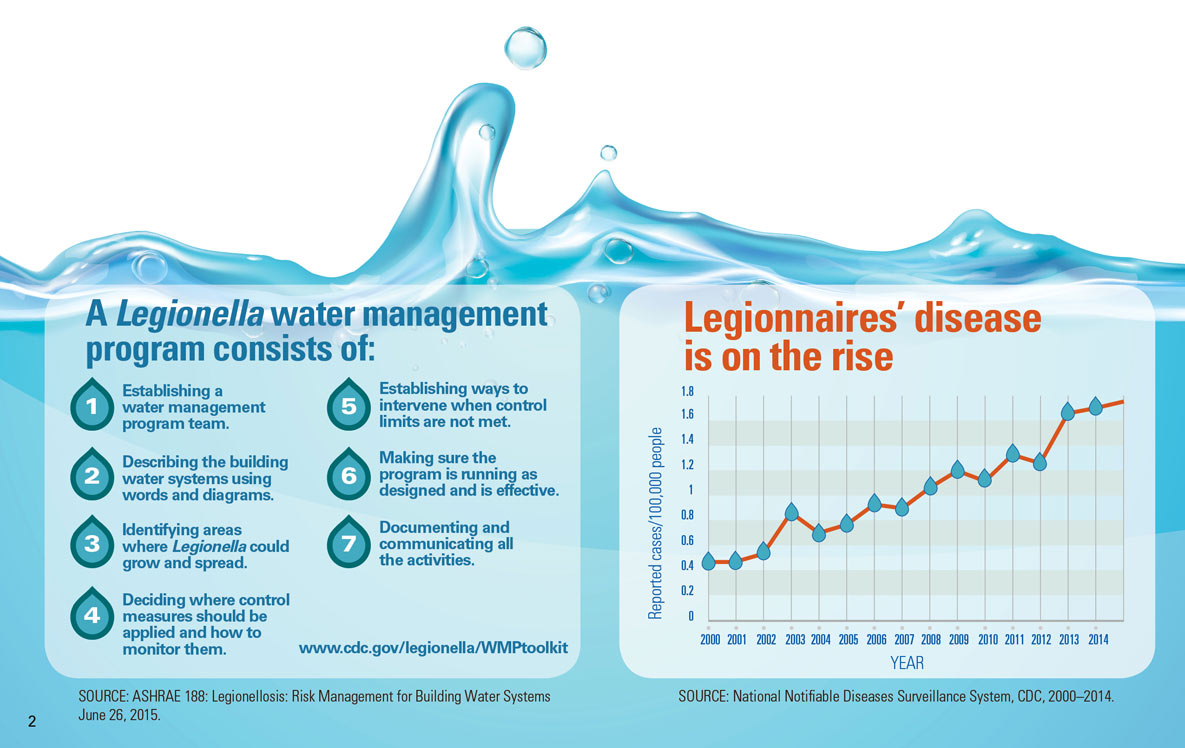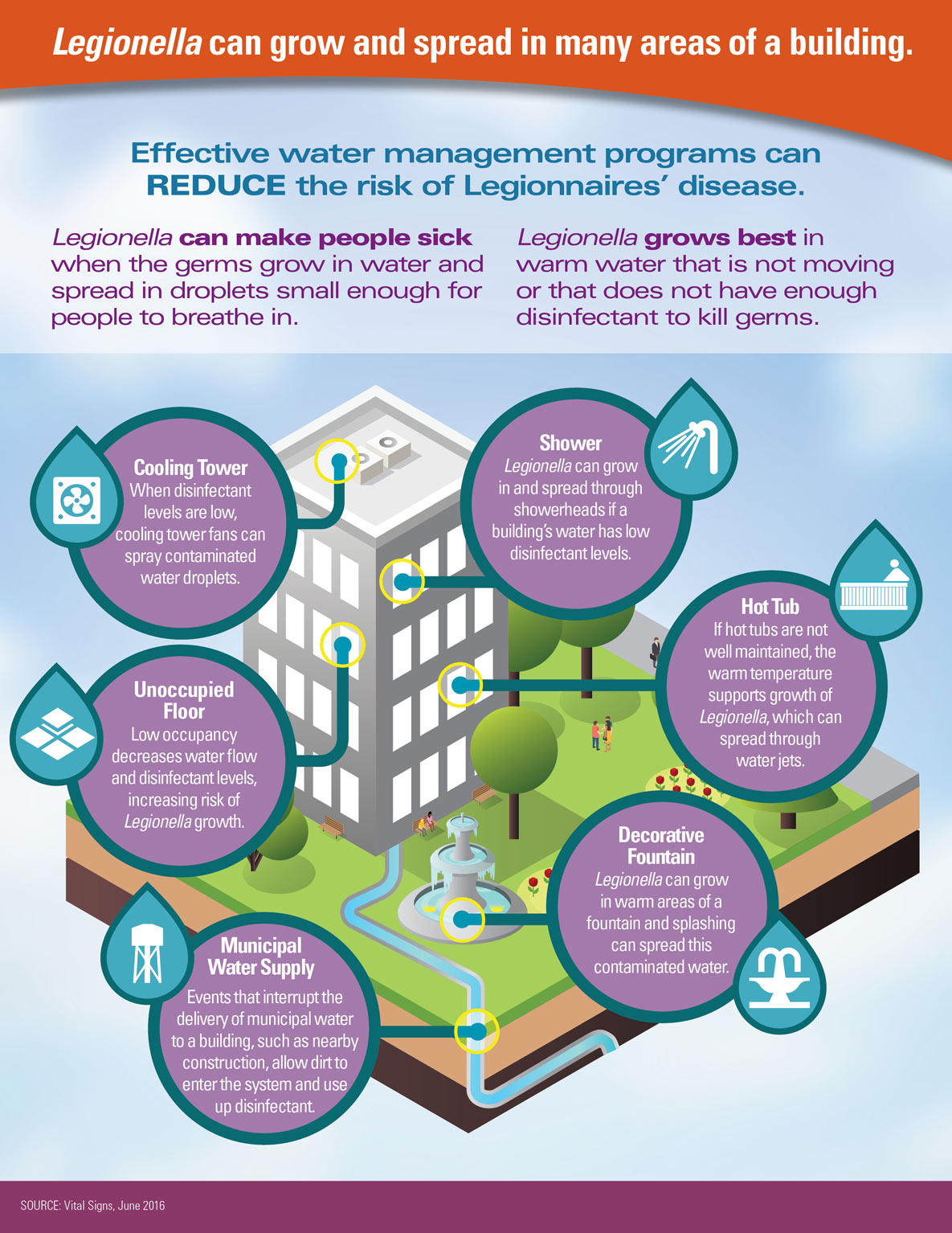Vital Signs: Legionnaires’ Disease
Use water management programs in buildings to help prevent outbreaks

A Legionella water management program consists of:
- Establishing a water management program team.
- Describing the building water systems using words and diagrams.
- Identifying areas where Legionella could grow and spread.
- Deciding where control measures should be applied and how to monitor them.
- Establishing ways to intervene when control limits are not met.
- Making sure the program is running as designed and is effective.
- Documenting and communicating all the activities.
More information is available at www.cdc.gov/legionella/WMPtoolkit
SOURCE: ASHRAE 188: Legionellosis: Risk Management for Building Water Systems June 26, 2015.
Legionnaires’ disease is on the rise
| Year | Reported Cases/100,000 People |
|---|---|
| 2000 | 0.42 |
| 2001 | 0.42 |
| 2002 | 0.47 |
| 2003 | 0.78 |
| 2004 | 0.71 |
| 2005 | 0.78 |
| 2006 | 0.96 |
| 2007 | 0.91 |
| 2008 | 1.05 |
| 2009 | 1.16 |
| 2010 | 1.09 |
| 2011 | 1.36 |
| 2012 | 1.19 |
| 2013 | 1.58 |
| 2014 | 1.62 |
SOURCE: National Notifiable Diseases Surveillance System, CDC, 2000-2014

Legionella can grow and spread in many areas of a building.
Effective water management programs can reduce the risk for Legionnaires’ disease
Legionella can make people sick when the germs grow in water and spread in droplets small enough for people to breathe in.
Legionella grows best in warm water that is not moving or that does not have enough disinfectant to kill germs.
Cooling Tower
When disinfectant levels are low, cooling tower fans can spray contaminated water droplets.
Shower
Legionella can grow in and spread through showerheads if a building’s water has low disinfectant levels.
Unoccupied Floor
Low occupancy decreases water flow and disinfectant levels, increasing risk of Legionella growth.
Hot Tub
If hot tubs are not well maintained, the warm temperature supports growth of Legionella, which can spread through water jets.
Decorative Fountain
Legionella can grow in warm areas of a fountain and splashing can spread this contaminated water.
Municipal Water Supply
Events that interrupt the delivery of municipal water to a building, such as nearby construction, allow dirt to enter the system and use up disinfectant.
SOURCE: Vital Signs, June 2016
